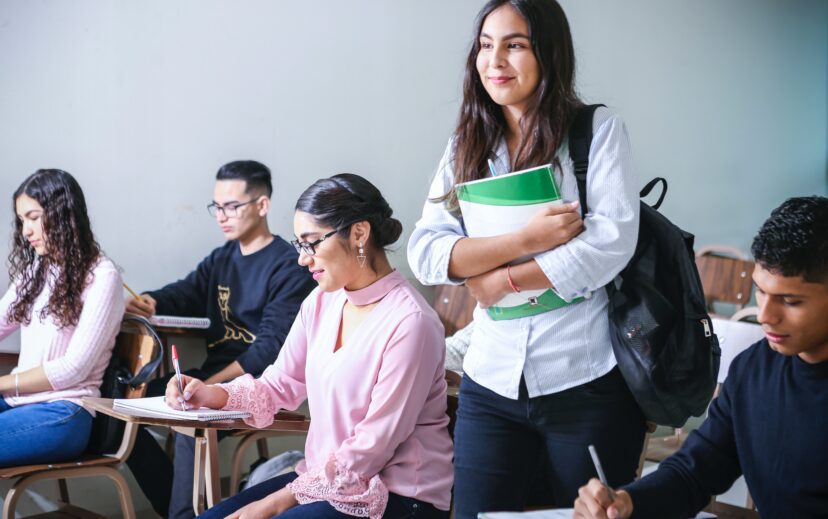In the last few years, the First Amendment rights for students have seen some changes. The Supreme Court case Mahanoy v. B.L. found that schools generally do not have the right to regulate a student’s off-campus speech. In Mahanoy, the Supreme Court found that the Mahanoy Area School District could not discipline student Brandi Levy for her off-campus Snapchat which stated “F**k school, f**k softball, f**k cheer, f**k everything” because it was in violation of Levy’s First Amendment rights. Additionally, the Supreme Court had found that the school district had no grounds to discipline Levy because the off-campus Snapchat did not cause a substantial disruption during school hours and did not specifically target another student.
However, in the last year, the Ninth Circuit decided the case of Chen v. Albany School District. This case slightly contrasted with Mahanoy and has provided instances where schools may regulate the off-campus speech of students.
Chen vs. Albany School District
The Chen case revolved around a private Instagram account that was created by a student at Albany High School in Northern California. This student only allowed 13 friends, including Kevin Chen, to follow the private Instagram account. The private account was then used to post memes, photos, and comments that escalated to malicious posts and comments that targeted Black students at the school. These posts and comments also included racist commentary, references to slavery, and references to the Ku Klux Klan. Chen was one of the students who liked many of the posts and added his own racist comments.
Unsurprisingly, news of the Instagram account and these threatening posts spread around the school. The account caused disruption school-wide with the targeted students feeling threatened and other students across the school becoming upset by the posts. As a result, the Albany school district suspended Chen and expelled the student who created the account. Chen’s parents then brought this lawsuit, arguing that the school did not have the right to regulate Chen’s off-campus speech and that his First Amendment rights were violated.
The Ninth Circuit disagreed with Chen’s parents. The court decided that though the Instagram speech occurred off-campus, it was brought on-campus because it had caused substantial disruptions at the school and was threatening to other students. Further, the court ruled that if Albany High School had not stepped in and disciplined the students who participated with the Instagram account, then the school would have been liable for allowing students to feel unsafe and threatened in the classroom.
Though the Chen court found that schools may regulate a student’s online, off-campus speech, schools may only regulate when the speech causes a substantial disruption to the school’s activities, or the off-campus speech causes a threat or harms the rights of other students. The court was quick to recognize that schools need to assess students’ off-campus speech on a case-by-case basis.
Student Speech and the First Amendment
Chen is not the first case where a court has found that a school may regulate students and their First Amendment right to free speech. The case of Bethel School District v. Fraser found that schools may regulate on-campus student speech if the student used sexually explicit language. Similarly, the court in Morse v. Frederick found that schools could regulate student speech at school-sponsored events that promoted illegal drug use. And the case of Hazelwood School District v. Kuhlmeier gave schools the right to censor on-campus student speech if it was “reasonably related to legitimate pedagogical concerns.”
In contrast, in the landmark case of Tinker v. Des Moines Independent Community School District, the Supreme Court held that students still retain their First Amendment right to free speech in school, so long as the speech did not create a substantial disruption to school activities or invade the rights of others. Though the Tinker case recognized that students still have the right to free speech on-campus, the Supreme Court has gradually added caveats and exceptions to this right, as evidenced by the cases outlined above. As such, it can be difficult for students to exercise their right to free speech on-campus without schools exercising the authority to regulate the speech.
However, the Mahanoy case was the first one where the Supreme Court took a stance on whether schools had the ability to regulate student speech that occurred off-campus.
Differences Between Chen and Mahanoy
There were a few key differences between the student speech in Chen and Mahanoy that allowed the Ninth Circuit to feel comfortable holding that the school was allowed to regulate the off-campus speech in Chen.
- First, though the students in Chen intended for their Instagram account to be private, it was foreseeable that the account would be shared via screenshots, forwarded posts, or by adding additional students to the account. In contrast, though the snapshot in Mahanoy was shared through screenshots, generally Snapchats are meant to be short-lived, and are only posted for 24 hours.
- The Snapchat at issue in Mahanoy did not identify or target any individuals. The Snapchat was the student’s way of venting her frustration for not making the varsity cheerleading team. Meanwhile, the Instagram account in Chen targeted threatening speech towards specific students.
- Finally, the off-campus speech in Chen was brought onto campus and caused a substantial disruption to school activities. There were students upset about the Instagram posts, and threatened students were missing school and earning lower grades due to feeling unsafe at school. On the other hand, the speech in Mahanoy did not cause any substantial disruptions with school activities, and in turn, was not brought on campus.
Overall, these key differences were enough to provide this new exception to the Mahanoy rule and allows schools to regulate off-campus speech in very narrow circumstances.
Conclusion
The issue of off-campus speech and school regulation is a complex and evolving legal issue. There are a few factors that need to be considered when determining whether a school can oversee and discipline off-campus speech. Since this is an issue that courts must evaluate on a case-by-case basis, it is beneficial to consult an attorney who can help navigate the process. Reach out to a member of our team to learn more.





